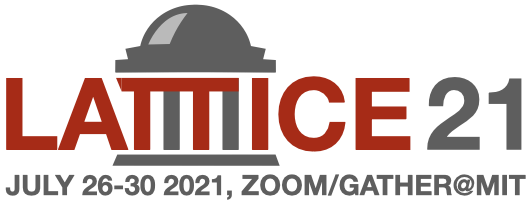Speaker
Description
The tensor network framework is an alternative to traditional lattice-based methods where one can simulate the statics as well as dynamics of lattice gauge theories (LGTs) without encountering the sign problem.
So far, however, most tensor network studies of non-abelian LGTs have been restricted in scope to one spatial dimension with open boundary conditions.
This restriction is lifted in the loop-string-hadron (LSH) formulation of SU(2) LGT, in which one works with manifestly SU(2)-invariant local operators and states defined at each lattice site that are weaved together by a U(1) constraint along with the links to yield the original Wilson loop and string states of the theory.
Here, we construct a tensor network implementation of SU(2) LGT based on the LSH formulation. We recover the bulk and continuum limits of static properties such as the ground state energy and the vector mass gap, accounting for effects of a finite electric field cutoff. Our LSH-based tensor network approach generalizes naturally to higher dimensions, and may provide a path for tensor network-based quantum state preparation of the SU(2) LGTs for quantum simulation.




